March 1, 2023
By Anne Dabbs,
NCAN TN Support Group Leader, NET Patient

First thought, second thought is a basic philosophical approach to thinking. A first thought can be a knee-jerk reaction, akin to “blowing a gasket”. Flying off the handle when presented with an unpleasant situation is a hallmark of Carcinoid Rage. These overly charged responses are not unique to those of us with excessive overproduction of Serotonin, but they can happen to anyone with an overburdened life. A second thought is oftentimes a more helpful response, an assessment of sorts. A second thought occurs when we are able to step back a brief moment to see the bigger picture and respond accordingly to the most important aspect of the situation. We often hear “when life gives you lemons, make lemonade”. In my opinion, first thought thinking without the benefit of second thoughts can leave a sour bitterness instead of a refreshed perspective of your situation.
In hindsight, I realize now that just prior to my NETs diagnosis, I was living a life full of first thought, knee jerk reactions to even the smallest perceived slight I felt. I knew my emotions were out of control, but I was unaware of the storm my hormones were brewing internally until several years later. I am not alone in this predicament. Many other NETs patients also experience hormonal overloads. We owe it to ourselves, our friends and family, and yes, even to our medical providers to learn how to deal with these expressions.
So many in receiving a NETs diagnosis want to FIX IT NOW! Only a small percentage of NETs patients have the opportunity for a curative treatment, so we must learn to live with our disease. We must learn to advocate for ourselves diplomatically as well. The phrases “watch and wait” and “it’s a marathon, not a sprint” do not always have the comforting intent that our physicians hope for. We want action; we want resolution. Not taking immediate action seems counter productive. Sometimes, we begin to mistrust the physician for not taking a more aggressive immediate action. When we have time to consider a “Second Thought” in this scenario, we realize that perhaps the physician is wanting to gather more information, confirm a suspicion, or wait for stabilization before implementing a new treatment plan.
First thoughts often arise out of fear and frustration. Poorly considered and automatic, these first thoughts can be detrimental to our well being. To be able to step back from a situation and have a “light bulb” moment is a step forward toward self advocacy. Learn to take a moment to say “yes, but” or “yes, and”. This is how you can turn a negative emotion into a positive mindset. Your second thought can be an improvement on your first. Instead of drawing a line in the sand as a result, your second thought becomes a detour on a map to be mastered. Second thoughts are what allow us to make lemonade out of those lemons!
After I was diagnosed, I was in a situation in which I was distraught, thinking my insurance company had overridden a doctor’s medication prescription with an unauthorized substitution. Replies to my comment were fast and furious. All sorts of accusations and resolutions were offered. This was a prime example of emotionally charged first thoughts (of fear and frustration). Shortly after, a reply of a second thought nature appeared. The “substitution” was the actual name for the drug I only knew by the pharmaceutical company’s brand name. I had not been wronged by my insurance company after all. The second thought corrected and diffused the situation immediately.
Simple patience often looks like waiting around or twiddling your thumbs. But, it is not the same as inaction. Patience allows you the time to consider a second thought, a better detour, a confirmation of a more developed plan. Practice second thoughts and they will become second nature to your thinking. Practice listening with the intent to understand rather than listening with the intent to reply. Your perception of whether to act immediately (an emergency) vs the consideration of all options will result in a healthier mindfulness of your overall health.
NCAN offers many resources for learning more about Neuroendocrine Cancer which can help you develop your ability to understand and discuss your care with your medical team. Check out the NCAN YouTube Channel, and tune into NETs Get Real podcast and over 10 years of conference videos to help you become your own best advocate.
And remember, we are here for you, if you need us.
Find out more about how YOU can help the NET Community.
Disclaimer: NCAN blog posts are the opinions of its writers and are not intended as a replacement for medical advice. Please consult your Health Care Providers for individual concerns.
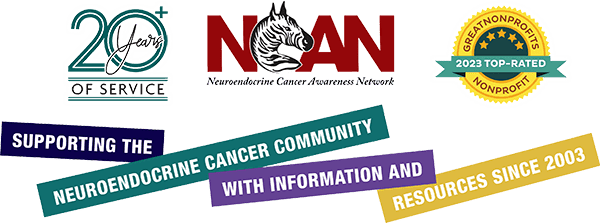
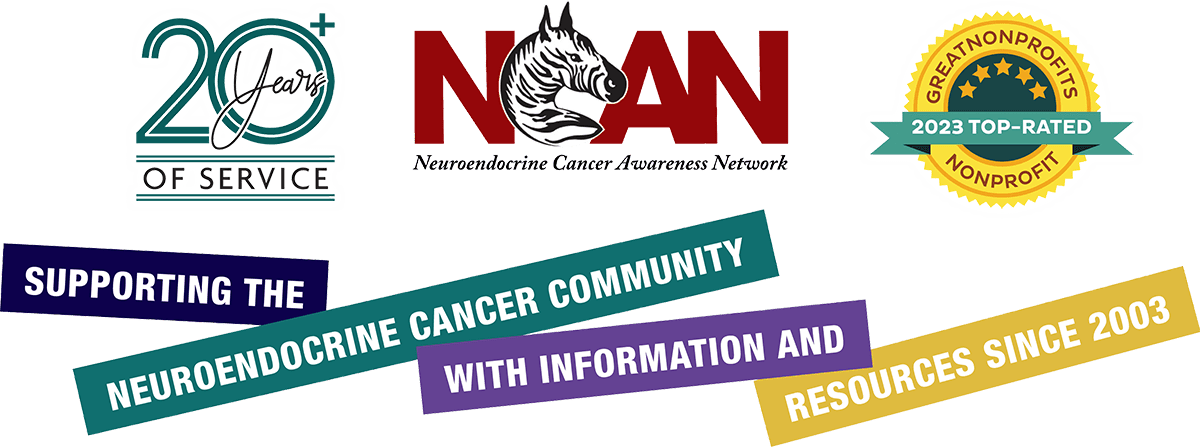

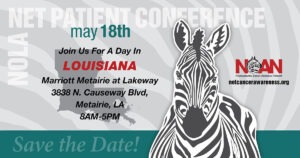
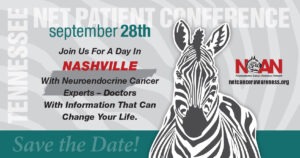

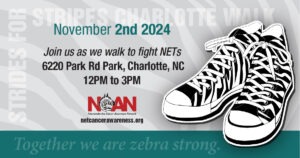

Recent Comments